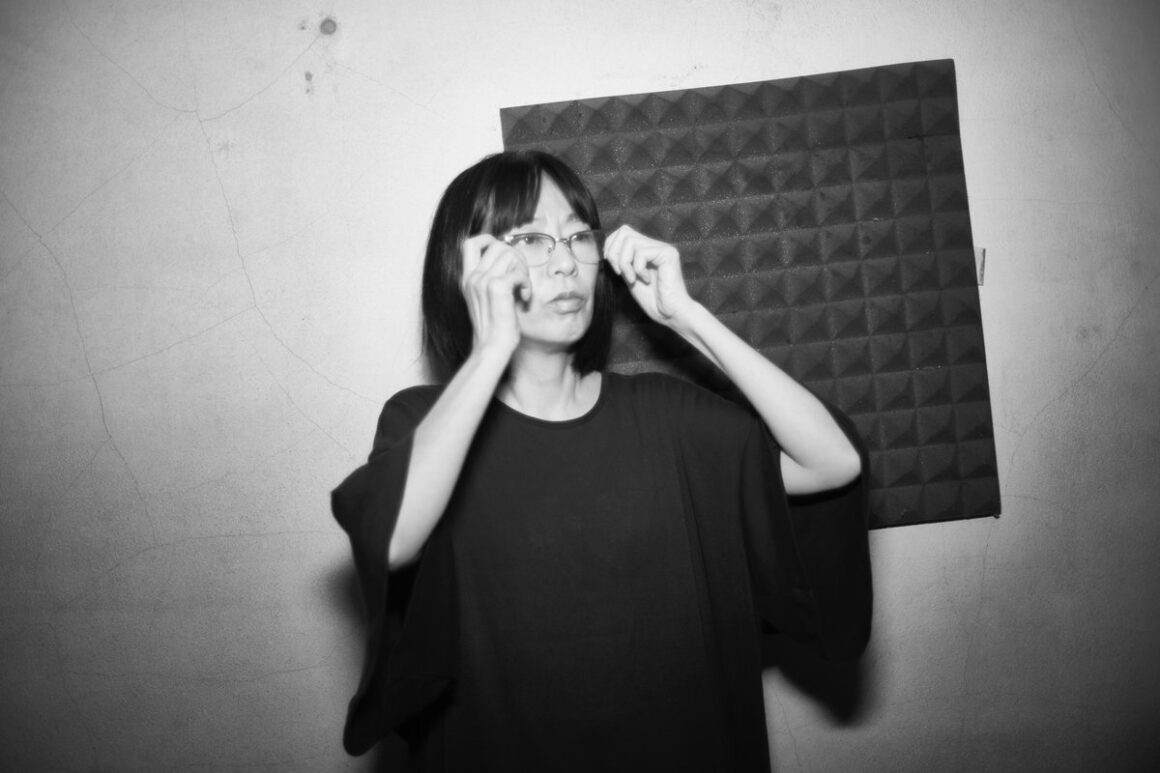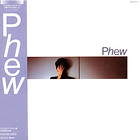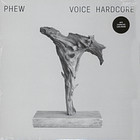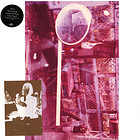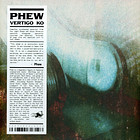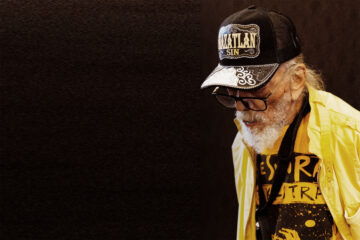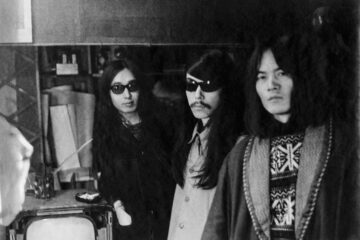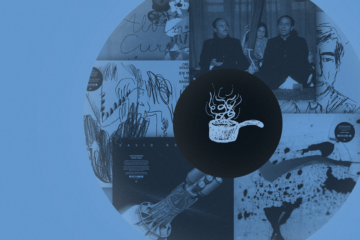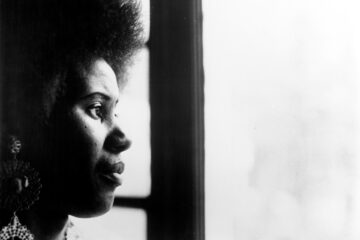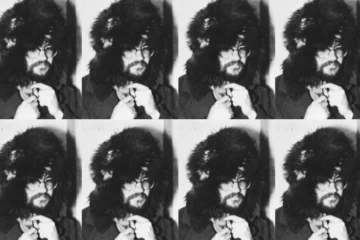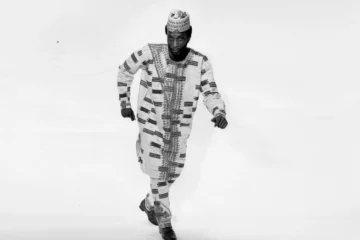Where others just hear music, Phew sees possibilities. In 1975, the then teenager witnessed the New York Dolls live in Kyōto. »They played on two stages because the headliner Jeff Beck had cancelled at the last minute,« she recalls today. »After every song, the singer, David Johansen, could be seen inhaling oxygen at the edge of the stage. Unlike Lou Reed, who I had seen a few months earlier, or Marc Bolan and David Bowie, these guys weren’t rock stars looking down on the audience from on high.« A whiff of democratisation lingered in the air that evening and soon reached Japanese television as well. The Sex Pistols appear there on TV for the first time in 1976 and inspire the young viewer less with their music and more with what they embody: these are people of her own age who appear to defy musical and social norms. The year afterwards, she travels to London to see the band live. Punk was dead in 1977, she claims today. However, its rise made one thing quite clear to the teenager: what they can do, she can do better. Punk isn’t something to be consumed, but to be lived. In whatever form of music.
So just a little while later, Phew founds Aunt Sally with four other young women. The band quickly gains a reputation in the country’s then still young punk and new wave scene and releases their self-titled debut album in 1979 on music journalist Agi Yuzuru’s then fledgling Vanity Records label. These are exciting times for the country’s music scene, which at the time is experiencing an economic boom and whose Prime Minister Ōhira Masayoshi proudly heralds a »new age of culture«. Meanwhile, a lively independent scene is emerging, especially in the region of Kansai: In Kyōto, the noizu phenomenon develops around the kissa Drugstore, and a punk scene emerges in Phew’s home town of Ōsaka. The influences come from the UK, but mainly from the USA, and range from art-rock to punk to post-punk and no wave. »Aunt Sally« was the first independent LP from this period and also attracted mainstream attention, but equally hostile comments from the press. However, the band broke up as quickly as it made a name for itself, in the autumn of 1979. However, one thing had proven successful: that it was possible to make music in an unconventional way and still make yourself heard with it.
The end of Aunt Sally marks the beginning of a musical life which Phew has continued to live against the grain of the music industry since. With the release of her first solo single in March 1980, she lays the foundation for her solo career and discovers for herself the possibilities that the recording studio has to offer: »Vocals. Voice. Noise.« are what the credits on the Sakamoto Ryūichi-produced single dryly attribute to her – it will reportedly take over three decades for her to return to this ranking. To begin with, she finally flies to Germany to record her self-titled debut album with Holger Czukay and Jaki Liebezeit from CAN as well as legendary Krautrock producer Conny Plank. »The way I heard it, Holger had a copy with a collaboration EP with Sakamoto. When someone from the record company was in Conny’s studio, Holger asked them if they had heard of me. After that, everything went very quickly, with the collaboration being described as collegial and open-minded. »Phew« continues with the dry and confrontational style set by »Aunt Sally« and the »終曲(フィナーレ) / うらはら« single: Here more Joy Division than Sex Pistols, there closer to industrial and experimental sound art than at home in the broader field of pop music.
Related reviews
Nevertheless »Phew« is still well received in Japan, despite the fact that it sonically and artistically stands in stark contrast to the city-pop era that accompanies Japan’s ongoing economic rise to the »soft power« of economic and cultural provenance. But instead of wallowing in success and trying to build on it, Phew turns her back on the music industry. After all, she had already experienced with Aunt Sally that the audience and press were more interested in the bands’ appearance than in their actual music. During the 80s, she releases just one album, »View«, featuring synthesiser-flavoured art-rock and punk songs. It was not until her third LP »Our Likeness« on Mute in 1992 that she began to refocus her career. The eleven pieces, which among others feature Jaki Liebezeit, Alexander Hacke from the Einstürzende Neubauten and D.A.F. and Liaisons Dangereuses member Chrislo Haas are even more belligerent and adventurous than her previous work: The vocals are even more expressively modulated, the screams even louder.
A little later and at the behest of her record company at the time, she founds a label with Alida to release an album by the Czech singer Dagmar Andrtová. Alongside releases by Bill Laswell’s Blind Light project and the IDM group Dowser, the label also releases a CD by the improv group Novo Tono featuring Phew and Otomo Yoshihide, among others, as well as the solo LP »秘密のナイフ = Himitsu No Knife«, on which she takes apart broad-walled stadium rock tropes. »That was kind of a bonus,« she says, »but after that the company went bankrupt and the label was shut down.« She keeps going, though, and is especially keen to collaborate with others: In the noughties she collaborates with Dowser member Terai Masateru under the name Big Picture, joins Otomo Yoshihide’s New Jazz Ensemble and records two albums with the group Most. The band’s style marks a distinct musical return to the classic sound of punk, which for Phew didn’t start everything, but a lot. At this time, she is not active as a solo artist – she has a small child to take care of, so neither has the time nor the space at home to set up a studio there.
»Im 20. Jahrhundert wurden viele tolle Protestsongs geschrieben. Und was dann passierte, wissen wir alle. Selbst die tollste Musik kann die Welt nicht verändern.«
Phew*
After releasing a collaboration album with her former Aunt Sally band member Mori Yasuko alias Bikke in 2009, she returns in 2010 with an unusual LP: »Five Finger Discount« compiles cover versions of popular Japanese songs, but also pieces by Sakamoto and Elvis Presley. Phew, who had previously made use of her voice in the most extreme ways, suddenly debuts as a crooner, purring »Love Me Tender«. It is another facet of this voice that once again falls silent after the tsunami and the subsequent reactor disaster at the Fukushima Daiichi nuclear power plant. The singer records little music; a track called »Drone«, which was only released later, does without vocals. »What words could I have used to describe such an incident? ‘Sadness’? ‘Don’t give up hope!’? ‘No night without dawn!’? That would have been reckless, wouldn’t it?« she remarks today. Japan’s increasing shift to the right, which manifested itself at the end of 2012 with the (re-)election of Abe Shinzō as the new prime minister, also troubles her. She is not willing to take an artistic position on this. She, who sees the possibilities in music above everything else, acknowledges its limitations and stares reality in the face instead: »A lot of great protest songs were written in the 20th century,« she sums it up. »And then we all know what happened. Even the greatest music cannot change the world.«
Yet Phew manages to find her voice again. In addition to a few CDrs that she sells at concerts, she’s been releasing new albums in quick succession since 2015, all of which are characterised by an increased use of analogue synthesisers and drum machines. »A New World« is partly a collaboration with John Dieterich from Deerhoof, »Jamming«, which is also wordless, juxtaposes two half-hour jams and »Light Sleep« contrasts scratchy beats and screeching synths with dramatic vocal performances. The spartan sound design is somewhat reminiscent of her first solo releases. While recording them, she was not only able to explore intensively the possibilities that synthetic sound generation provide for the first time, but also grasped that studio technology can be used to explore her already versatile voice even further. »Voice Hardcore« is released in 2017, just like »Light Sleep«, and yet is completely different – more dissolute, more radical. Again we hear »Vocals. Voice. Noise.« from her, but the six tracks consist of nothing more than manipulated recordings of her voice. »The impulse came when I fell ill on tour and couldn’t carry my heavy equipment around with me,« she says. »I decided to make music with my body alone.«
»Musik aufzunehmen bedeutet für mich, meine eigene Zukunft zu schaffen«
Phew
A similar approach underlies the collaborations that had invariably shaped her career up until that point. Whether on collaborations with Jim O’Rourke and Oren Ambarchi, whose label Black Truffle also went on to release a live album recorded together in 1982 with John Duncan and Kondo Tatsuo in early 2021, as well as the joint project I.P.Y. with drummer Ikue Mori and OOIOO founder Yoshimi As, she also states with regard to her own improvisations, it is precisely the frictions between the individual contributors that make the result fruitful for her. »It’s the mistakes that I find interesting and that motivate me to keep making music,« she says. »Collaborations are exciting because they incorporate a moment of chance. Sometimes we end up with something completely different from what we expected.« The collaboration with Ana da Silva, former guitarist for the British post-punk band The Raincoats, is somewhat more controlled. Both of them sent files back and forth haphazardly in a transatlantic exchange until they ended up with their joint album »Island«.
It is precisely this chance-based approach with its accidental results that permeates Phew’s career. The insight that no master plan is needed because it only poses restrictions. Punk not as a dead genre, but as a way of life. Her life lived against the grain of musical and music-industry conventions can thus be depicted, not as a steep curve, but as a zigzag course. Even if she herself doesn’t have much interest in hindsight. »For me, recording music means creating my own future,« she writes in the liner notes for the digital release »Can You Keep It Down, Please?« from 2020. »In other words, I haven’t learned anything from my past experiences and haven’t made any progress,« she explains in conversation. Looking back on her music, she always discovers ideas that unconsciously steer her working process and so elude the precise time of their creation, meaning that everything was already conceived within her and only had to be brought out into the light of day. Possibilities that reveal themselves because they have never been constrained.

